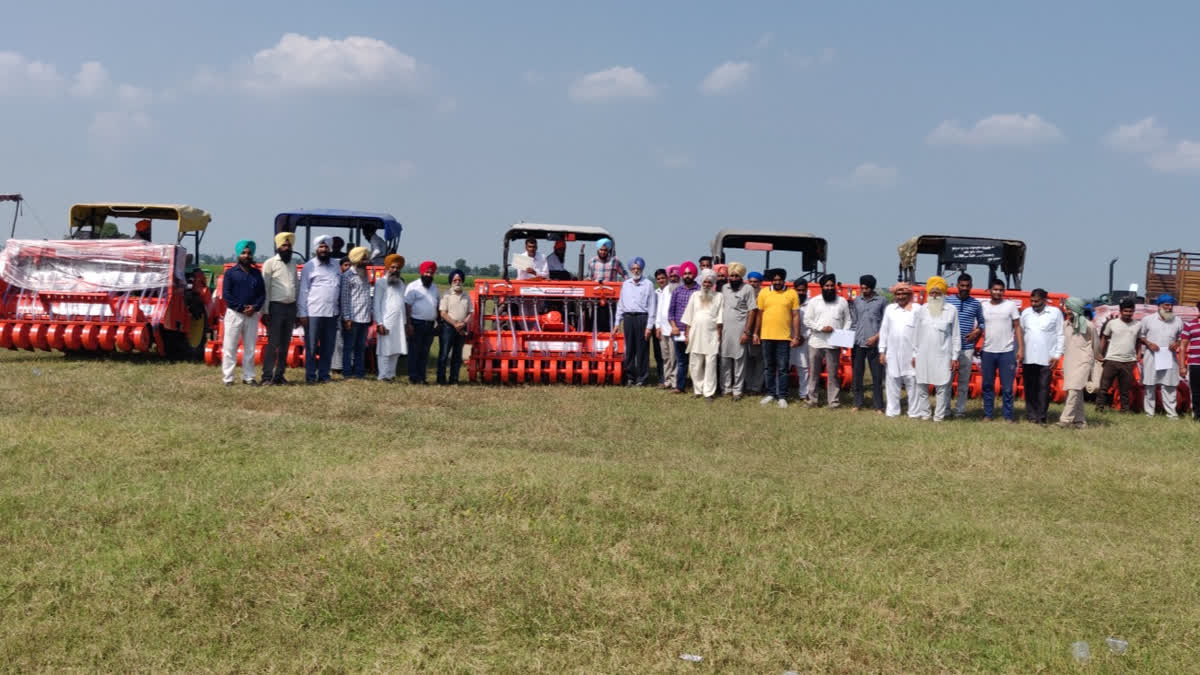Chandigarh: Reviving Green Revolution Cell was set up in 2002 with the collaboration of Tata Group, the Punjab government, the Central government and Agricultural Universities, although it started working in 2008 in six districts and is now spread in 3,800 villages of 12 districts. Now, this Cell has made an important contribution in providing farmers with modern technology, saving agricultural expenses, increasing soil quality, less fertilizers, stubble management and bringing more yield with less cost.
The Cell is monitoring Ferozepur and Moga districts to deal with the declining water level and the emerging problem of drinking water in Punjab. This Cell, which started in 2008, will continue its work till 2025. The target set by this Cell is that they will work tirelessly to bring lower costs and higher profits to the farmers in Punjab.
Also read: Punjab: Gaushala stops 'stubble burning' by turning paddy straw into cattle fodder
There are many problems related to agriculture in Punjab, one of which is stubble management, although for many decades farmers used to believe in burning stubble to weed their fields, now the Happy Seeder machine not only sows the seeds, but also removes the straw at the same time and that led to 20 per cent reduction in stubble burning. In 2022, 30 per rcent reduction in stubble burning was reported in Punjab, 59,695 in 2018, 50,738 in 2019, 79,093 in 2020, 78,550 in 2021 and 53,792 in 2022. In 2023, there were 4,204 stubble-burning cases were reported in Punjab.
Reviving Green Revolution Cell is creating awareness among people in villages not to burn stubble by adopting different methods. In which, announcements among the Gurudwaras, distribution of brochures, staging of street plays, selection of one agricultural warrior for every 12 villages, paying a visit to the farmers to know their problems, providing them with machines as needed, new technology, new seeds and asking them to adopt modern methods.
The head and members of the Cell said that they went to the villages in the district where most stubbles were set on fire and with the help of the government, a bonus of Rs 2,800 per acre was announced to the farmers and they were asked not to set fire to stubble in at least two acres. Currently, this project is being run in 12 districts across Punjab, and the awareness campaign is being run in 3,800 villages, said Baljinder Singh Saini, Head, Reviving Green Revolution Cell.



